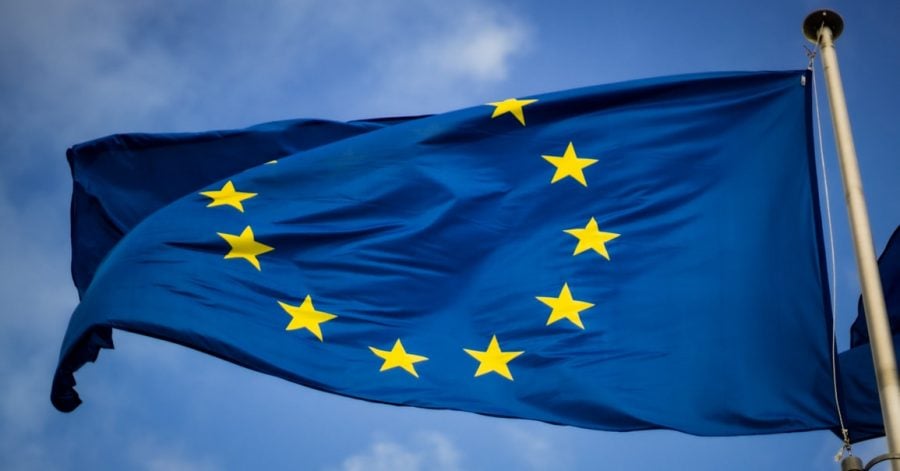What is the positioning of the EU startup ecosystem, compared to leading startup markets, such as the US? When it comes to research and development of innovative solutions, the EU, although keeping stable rates, has been considerably lagging behind the US market. In terms of patent data applicable in industry 4.0, a report by the European Investment Bank shows that the EU is not only behind the US but also trailed behind the Chinese ecosystem.
According to the report, the proportion of financially pressured companies in 2020 was 13% in Bulgaria and Greece, a little over 12% in Romania, and drastically lower in countries such as Austria and Sweden, where it stayed around 3%. The digital adoption rates of the Union, as well as innovation and digitization, are a lot lower, compared to the US, which deprives emerging tech companies of a market to deploy their solutions into. Startups that have been experiencing difficulty finding financing in the past year, represent one of the most hardly hit economic units, and the lack of financial instruments, such as venture debt lending, to support them, has been recognized not once during the last couple of months. When it comes to the positioning of the EU startup ecosystem, the European Commission has been working through providing funding and, most recently, adopting an agenda whose focus is on helping and retaining emerging companies. What are the main programs and how is the EU going to tackle the growing difference?
EC with an enhanced startup strategy
In its essence, the Startup Scaleup initiative aims to stimulate the development of the European startup ecosystem with the help of a set of EU-funded projects and policies.
Most of the projects are funded by the Horizon 2020 program, for instance, Scaleup4Europe, which aims to nurture cross-border “Scaleup Labs” where deep tech startups are helped collaborate with corporate clients, investors, and public institutions to develop a cross-border market strategy. Other examples for EU innovation acceleration programs include B-HUB FOR EUROPE, which is targeting blockchain startups, the X-Europe deep-tech accelerator, and INNODEC, whose goal is to connect investors and startups. When it comes to media outlets, another EU project – MediaMotorEurope, is facilitating the connection between media and deep tech innovators with the objective to deploy smart solutions in the media sector that can tackle misinformation and accessibility issues, user interfaces, design, and data usage. The European Innovation Council also has a crucial place on the EU innovation initiative map. Supporting high-risk developing small and mid-size enterprises (SMEs), the Council has several programs, including the EIC Pathfinder that supports research teams in developing new technological solutions, the EIC Accelerator that provides financial help to emerging tech companies through the EIC Fund for individual start-ups and small companies, and the EIC transition, which is invested in helping companies enter the market. When it comes to policies, the EU introduced the EU Startup Nation Standard, Innovation Radar, and the Digital Innovation and Scale-up Initiative (DISC) in accordance with its SME strategy that was introduced at the beginning of March 2020 by Thierry Breton, Commissioner for the Internal Market.
Creating a single startup union
The EU Startup Nation Standard (SNS), accepted by 24 of the EU member countries (except for Bulgaria, Croatia, and Hungary), will feature a set of policies and practices to facilitate better development opportunities for emerging companies, including more financial tools, as well as opportunities for easier expansion. The idea behind this is to stimulate innovation in the EU startup ecosystem and boost the rate of development of emerging companies in the Union, thus becoming competitive with other ecosystems such as those of the US and China. In its essence, the Standard is also set to harmonize the best practices in EU countries and provide entrepreneurs with the opportunity to create their startup in a less costly and digitized manner. The Standard is also considerably lowering the market entry barriers for startups as legal documents from other EU authorities can be submitted as proof for the legal constitution of an
emerging company. When it comes to financing, countries that adopt the Standard will also have to focus on expanding the range of financial instruments that startups can take advantage of by providing business angels with tax reliefs, diversifying private capital, and redirecting part of their Recovery and Resilience Facility (RRF) funding to enable better access to VC capital through the European Investment Bank (EIB). Startup visas are also set as a key pillar in the declaration on the EU Startup Nations Standard of Excellence, with an objective of processing each visa application within a month since the application process has been completed.
Another policy initiative is the Innovation Radar platform, initiated by the European Commission. The platform is supposed to act as a single information database that allows every interested party to discover EU-funded innovative solutions, while also giving EU citizens the opportunity to be involved with the startups behind these technologies. When it comes to Central, Eastern, and South-Eastern Europe, the EC also launched the Digital Innovation and Scale-up Initiative (DISC) to additionally accelerate the process of facilitating startup access to finances and stimulate investment into companies from the regions. In order to do so, one of the main priorities of the DISC initiative is planned to be the establishment of a regional investment facility that will offer pooled funding and risk-shared financing opportunities to companies, with financial tickets for scale-up companies ranging between €2M and €15M. The initiative also features an investment support program, that will connect startups to other market players and investors and will ultimately be used for match-making and portfolio creation and management, with one of the ideas behind the program involving the development of an investment portal. Finally, the DISC initiative will also be connected to upgrading the capabilities and enhancing the role of government authorities and improving the regulatory frameworks of countries. What is interesting about this program is that it aims to address both problems, connected to the lack of digital regional connectivity by encouraging cross-border investment, while also developing the concept of e-government infrastructure by reintroducing the idea for better connected public service e-portals, cloud computing, and cross-border public digital infrastructure projects.
The Bulgarian perspective
“Part of the reason behind the European market’s positioning as a laggard, when compared to other markets, is that there is the hyper bureaucracy that reduces the speed and efficiency with which the EU provides resources to startups,” Ned Dervenkov, CEO at BESCO – the Bulgarian Startup Association, one of the startup associations in the country that represents over 500 emerging companies, shared. During a talk with the Recursive team, the CEO added that the organization is in support of the new EU initiatives and stressed the importance of Bulgaria joining the Startup Nations Standard.

Ned Dervenkov, CEO at BESCO, ©Ned Dervenkov
One of the 3 countries that have not signed the SNS declaration, Bulgaria will have to work on implementing changes, connected to the eight points, outlined, Dervenkov elaborated. Already approved the legal coming in the existence of a startup visa, Bulgarian authorities have to work on facilitating changes that would make the country more connected, digitized and efficient. According to Dervenkov, authorities should place a deeper focus on the tech industry, as the tech sector has not been, up to this point, a priority of any of the previous governments. The CEO shared about BESCO’s efforts to tackle the problem, which included different educational activities, such as previous in-person meetings between officials and ecosystem builders, as well as the BESCO Business Breakfast – a series of online meetings between BESCO members and the most supported parties involved in the April 2020 elections, that happened between November 2020 and March 2021. Dervenkov also noted the positive change in the thinking of politicians who have a better understanding of what the startup ecosystem is, expressing the readiness of BESCO to continue working on improving the ecosystem.
As of this moment, BESCO is working closely on establishing a new type of legal entity that will offer more opportunities to startuppers for flexible investment, allowing investors to regulate convertible notes and financial mechanisms such as drag-along rights. The new project is connected to close cooperation with high-ranking authorities and is the reason behind the biggest change in Bulgaria’s Commercial Law since 1989. With this said, the 2021 plans of the association include introducing and voting the new entity, while conducting research and preparing to suggest strategies that could incentivize angel investments. Dervenkov added that restructuring voluntary pension funds to redirect part of the installments towards alternative VC funds is one viable way of improving the financial situation of the ecosystem. “If we want a unicorn or global companies, we’ll have to invest more money. The Bulgarian economy is not utilizing pension funds. Instead of waiting for the EU, we should put the effort in financial engineering, following the path of current digital champions,” he concluded.








